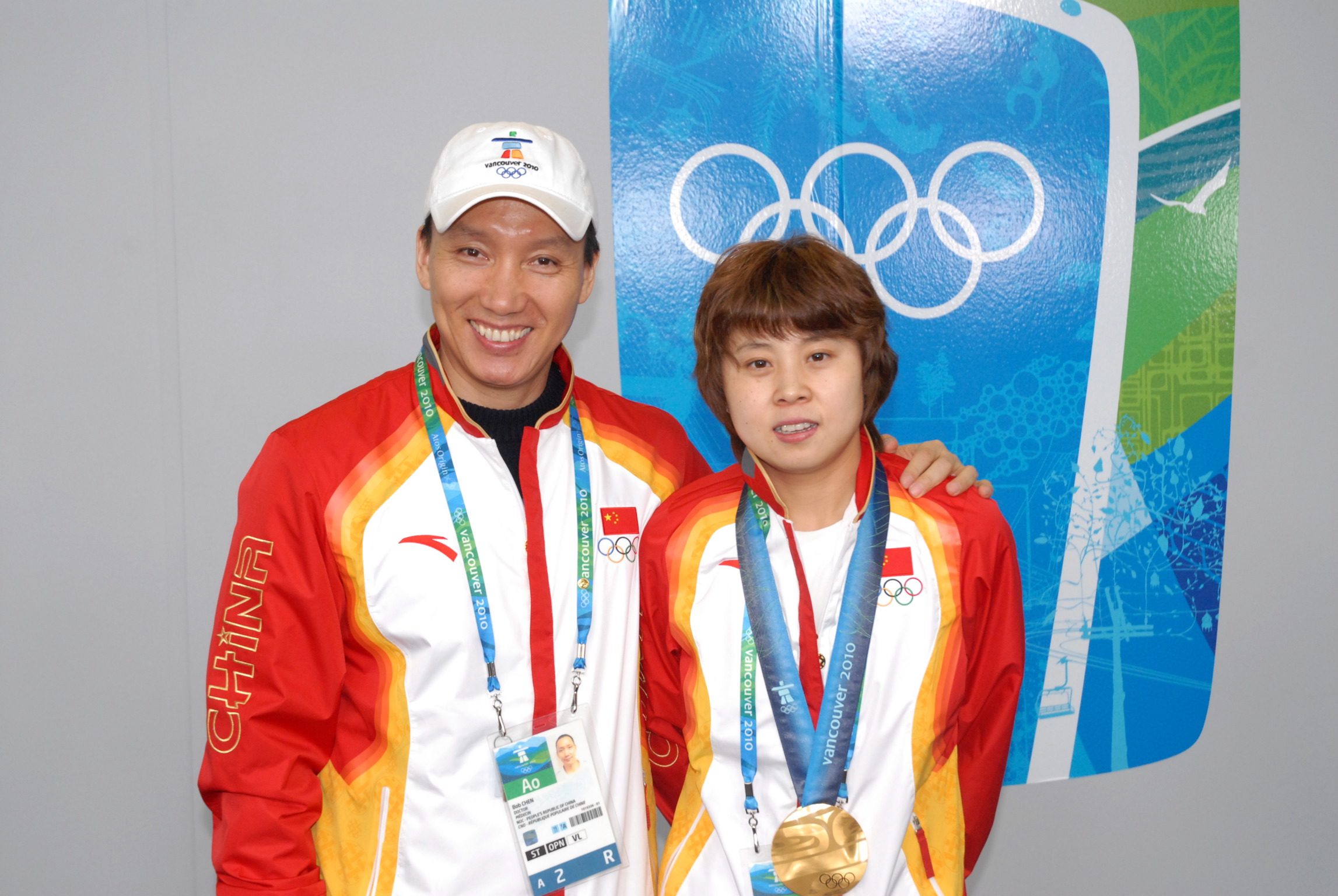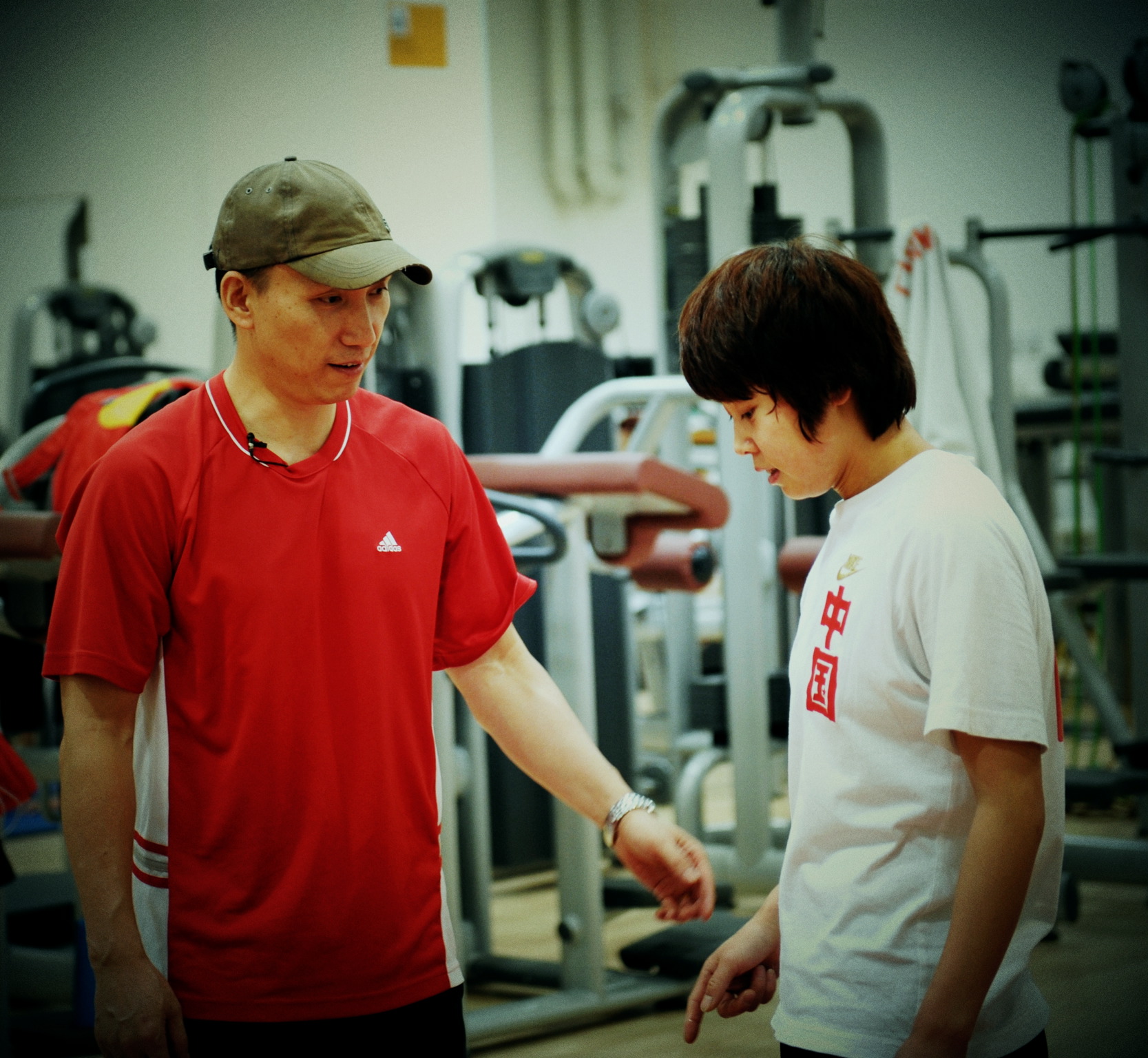Wang Meng2014-02-05 09:31:31 From:New Sports

● From the April issue of New Sports, 2012, dictated by Bob Chen, Written by Bai Qiang
When I first saw Wang Meng in 2008, she was a diligent student sitting in the first row listening attentively to the physical rehabilitation lecture I was giving to the National Short Track Speed Skating Team. Who would have known that when I saw her a year later, she would become our first patient during the preparation for the 2010 Winter Olympics?
What was the injury? The medical expert’s diagnosis was “third lumbar transverse process syndrome,” but we also found “ aseptic waist callosum fasciitis.” To put it plainly, it was chronic lumbar muscle strain. This injury, common even in the eyes of ordinary people, had caused the Chinese Women Short Track Speed Skating Team’s top skater the greatest pain: from upright to bending down forward, she would feel the great discomfort in her lower back; the more she skated, the more discomfort she experienced in her low back. After finishing skating, she could not straighten her body for a long time. It got a little better after warm-ups, but once she had rested for a while, it started to hurt again.
Especially after the training, she often experienced soreness, stiffness and tightness in her lower back, and could not recover until the next day. Sometimes, several days of training went to waste because of this.
The short track speed skating sport requires the body to be bent over a squatting position. When kicking the ice, legs, lower back and hips exert force simultaneously, and the back plays a key role. Wang Meng was good in strength and explosiveness. According to her teammates, she had liked a famous South Korean speed skater in her early years, so her posture was very similar to this person. When skating, her bent over magnitude was larger than others; the control of the center of her body weight by her abdominal muscles was more obvious. Therefore, her upper back seemed very prominent, and even when she walked normally, her back bent a little. It is easy to imagine that the back problem for Wang Meng was a big blow.
It is not difficult to find the cause for her injuries just by watching her train. Besides her lower position exercises causing too much load on her lower back, the excess of barbell weight training on land also did damage to the back, and some finishing exercises that required the lower back to exert force were not beneficial for her lower back to rest.
These were the coldest days in winter; it was cold outside, and the ice rink was not only cold, but humid. In thin layers, Wang Meng worked up a sweat, and after she stopped, her whole body became cold quickly. This alternation of hot and cold undoubtedly caused and aggravated her muscle strain.
After we found the cause, we, along with the team doctor, developed a whole new personalized treatment and recovery program. Given the length of her injuries, the cold environment, and the more severe deep fascial adhesions, we put her into a pool to play, and afterwards she soaked in hot tubs, and used the hot water to massage her lower back to promote blood circulation throughout the body and reduce its fatigue.
Before training, we intensified the waist callosum stretching on her, which helped to stretch out her stiffened adherent muscles and fascia. In the meantime, we conducted small muscle exercises on her lower back in order to stabilize her lumbar spine. During resting times between training sessions, we had her to put on her coat immediately to keep warm. If the resting time was long, we would ask her to do warm-ups before hitting the ice rink. After the training, we had her do jogging exercises to sweat, which could get rid of the body chill and metabolites, followed by one on one stretching, which fully relieved the muscle spasms. In the evenings, the team doctor would perform deep relaxation massage on her lower back.
Wang Meng was very smart and full of personality, and she needed to understand everything clearly, otherwise it would be hard for her to accept. At the beginning when I was doing fascia relaxation therapy on her, she half-jokingly said to me:” Dr. Chen, have you eaten yet? Why are your hands so weak?” I knew that she was accustomed to the deep muscle massage, the kind using the elbows to press with high intensity into the legs, so this gentle kneading and shallow pushing was hard for her to accept. So, I dug out a three-dimensional anatomy, and asked her:” I know that you like eating beef, but which part of the beef do you think is the toughest part to chew?” She answered: “The white muscle.” I told her, “the toughness of this layer of fascia is the strongest. It is full of blood vessels, and once it changes its nature it becomes stiff and locks up the muscle inside, and they adhere, leading you to experience a feeling of soreness. Your aseptic fasciitis is the same. It is at the surface of your muscles, therefore, gentle, superficial treatment techniques are being used.”
Then I discussed it with her. “I only want one chance, and you also try once, and let’s see the effect!” After one treatment, Wang Meng felt pretty good, and she started to cooperate with us.

The high altitude training in June is the high season for muscle strain. We arranged for Wang Meng to do swimming training. The first day we entered the water, I said to her, “you have to swim the same distance as I!” But she started gasping after only one lap. I knew that for a girl who loves a challenge, the best way was to dare her. So I shouted: “I am over 50 years old! Can’t you out-swim me?” This aroused her tenacity, and she entered the water and started to practice hard. 10 days later, she swam 1500 meters at a stretch, and for the last 50 meters, not only she was dashing for the goal, but showing off in front of me by doing the butterfly...how cheeky!
In February 2010, I went to the Vancouver Winter Olympics with the Chinese delegation, and every evening, I performed a 45 minutes or one-hour fascia relaxation therapy for Wang Meng. When I saw the gold medals being put around her neck one after another, I smiled heartily with her.

